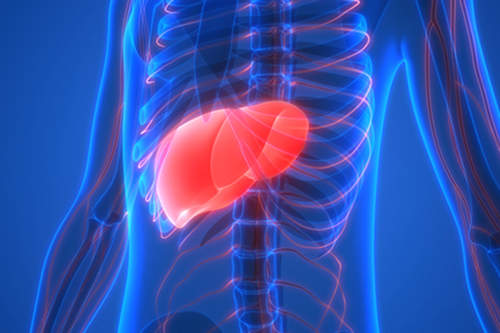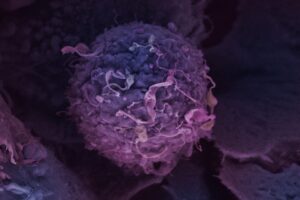Scientists in the UK believe that patients with sudden liver failure could benefit from a new treatment in the future that could cut down the need for transplants by preventing a process called senescence with certain anti-cancer therapy drugs.

Image: UK scientists believe certain anti-cancer drugs can potentially treat liver failure. Photo: courtesy of University of Bristol.
Subscribe to our email newsletter
In their study in mice, the scientists discovered that liver injury triggered senescence, which is normally associated with aging or chronic disease.
The researchers found that certain anti-cancer therapy drugs that are capable of inhibiting TGF-beta, were successful in preventing senescence from spreading in the mouse models. They also found that the liver was able to regenerate after treatment, thereby preventing death resulting from liver injury in the mice.
A research published in this regard in Science Translational Medicine outlines the potential of a new anti-cancer drug as a potential alternative to liver transplant.
The study was carried out by scientists at University of Edinburgh MRC Centre for Regenerative Medicine, the Cancer Research UK Beatson Institute in Glasgow, and the University of Bristol.
The scientists are hoping that the proposed therapy could prevent liver transplantation after their investigations found out why and how the liver loses its natural ability to regenerate.
University of Edinburgh’s Tom Bird, the lead author of the study and a Wellcome Trust Fellow, said: “Our research has identified a potential treatment for acute liver failure, which may prevent the need for transplant.
“This could make a huge difference for patients with Acute Liver Failure and could also help free up donor livers for people with other forms of disease, who might otherwise die whilst waiting for a suitable organ.”
The University of Bristol said that more studies are now required with the next step is to clinically explore the potential of the new drugs on patients with liver failure.
Wellcome Clinical and Physiological Sciences team member Lindsay Keir said: “This important study offers hope to patients who develop sudden liver failure after taking too much paracetamol.
“Since this study was predominately carried out in mice, further research is needed before this could be used to routinely treat patients.”
 Advertise With UsAdvertise on our extensive network of industry websites and newsletters.
Advertise With UsAdvertise on our extensive network of industry websites and newsletters.
 Get the PBR newsletterSign up to our free email to get all the latest PBR
news.
Get the PBR newsletterSign up to our free email to get all the latest PBR
news.

